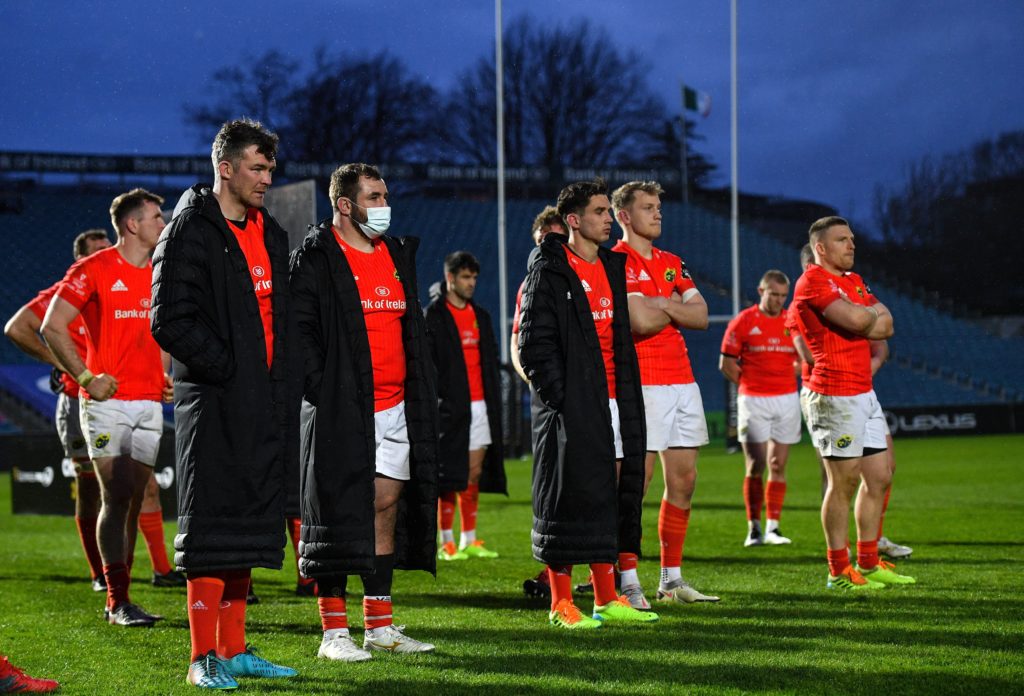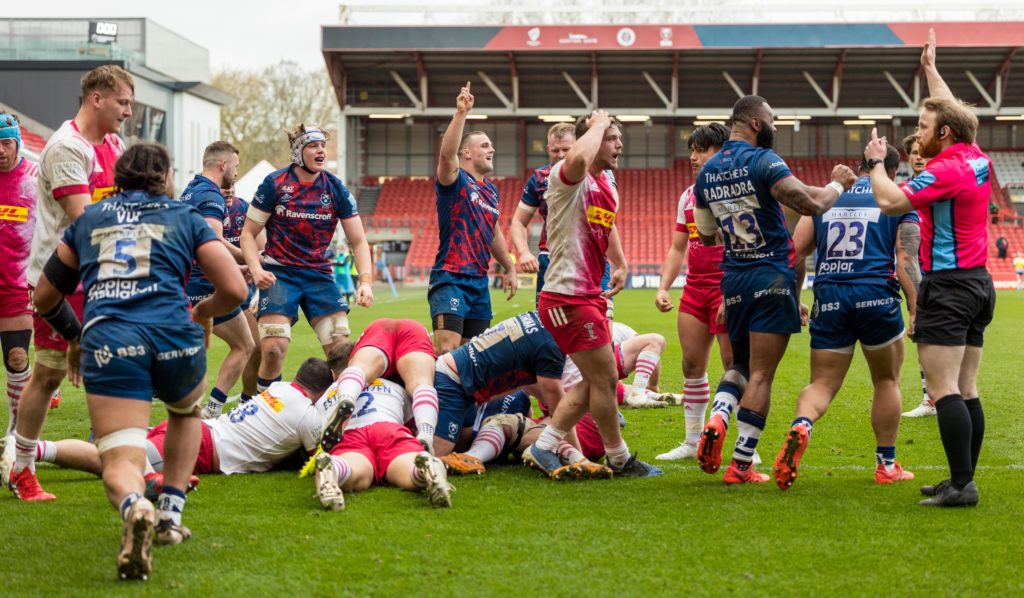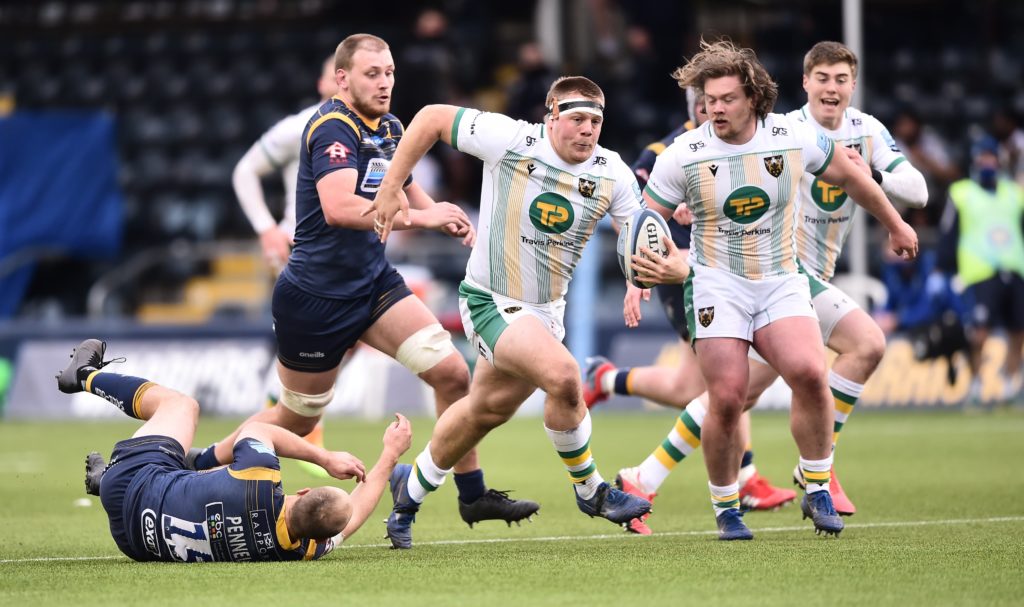The elongated Six Nations came to a remarkable close on Friday night as Scotland applied the coup de grace to a stunning tournament, which was all the more surprising given the drudgery of the Nations Cup. After this vignette, rugby fans had a weekend of domestic action to gorge on as the season comes to the boil. All Irish eyes were on the RDS and Leinster took on old foes Munster, the Dragons chased improbable Champions Cup qualification, while a full fixture list in the Premiership saw 42 tries and several nail-biting finishes as it continues to deliver the goods. Here’s what The XV made of it all…
Fitting finale
It was bonkers, it was breathless and it was utterly, hypnotically brilliant. France and Scotland concocted a fitting denouement to this most enthralling of championships.
This Scottish team have become history-makers and hoodoo-smashers. At Twickenham and in Paris, they have scaled heights Scottish rugby has not known in decades. We can and must revel in their resilience on Friday night, their accuracy under pressure and bottle in the face of massive adversity.
But you can’t help but look back at this championship and wonder. Bookended as it was by howitzer displays against England and France, the home losses to Wales and Ireland become all the more anguish-inducing. It is hard to argue that Scotland should have beaten the Irish on that crisp Edinburgh afternoon, not with the performance they delivered and the way their lineout melted under Paul O’Connell’s blowtorch. But the Wales game will have these boys waking up in cold sweats for a while yet.
The reason fans get annoyed is not because Scotland lose matches, but because they are so plainly capable of winning them. A three-victory Six Nations is about par for Scotland now, but the nature of those huge away wins render this a good tournament. The challenge now is to back it up when Scotland so often crumble. A great deal of looking back to be done, but there is plenty, no doubt, to look forward to.
Leinster monopoly damages PRO14’s credibility
Since its inception 20 years ago, the PRO14 has been in a prolonged battle for credibility, hardly helped by its addiction to rebrands and name changes. It started out as the Celtic League, was briefly known as the Magners League, then the RaboDirect, after that the PRO12 and most recently the PRO14 (even though there were only 12 teams in this year’s competition). Next month, we start over with the PRO14 Rainbow Cup. Despite the name, this one has 16 teams.
Crucially, four of those are South African – the Bulls, Sharks, Stormers and Lions – each of whom arrive with pedigree, the Bulls winning three Super Rugby titles between 2007-10, the Sharks appearing in four finals, the Lions in three recent ones, the Stormers in another.
They’re needed. A competition can only be called that if teams are competitive within it. And for the last two years, Leinster have been able to do what they please, winning all bar two of their games, their defeats coming when they had shadow sides out. To put further context on their dominance, Tadhg Furlong, the best tighthead in the world, picked up a winners’ medal on Saturday after Leinster’s 16-6 victory over Munster. He played just 67 minutes in this year’s championship.

For everyone else, apathy was becoming the enemy. Ospreys and Glasgow were once ornaments on the PRO14 mantelpiece, the Welsh side winning four titles, the Scots reaching three finals in six seasons. They won 14 games between them this season, the same number Leinster, Munster and Ulster chalked up.
At the weekend, as Leinster strolled to their fourth championship in a row, the losing coach, Munster’s Johann van Graan, talked up his side’s ability to restrict Leinster to just one try. Those words are coming from the second-best team in the competition.
So when his Leinster counterpart, Leo Cullen, welcomed the South African entrants with open arms – “for the credibility of the competition we play in, for the profile of it, it is only going to be positive” – it was little surprise. “It’s going to be a massive challenge,” Cullen reiterated. It’s needed – because they haven’t had one in years.
Bristol Bears now rolling with the big boys
You have to give credit to Harlequins. A side who have seemingly kick-started their season since their DoR Paul Gustard departed, they gave the Bears an almighty scare at Ashton Gate, and looked to have given Pat Lam’s men a metaphorical bloody nose until 79 minutes. At 33-28 up, they gave away a raft of penalties that led Bristol to edge ever closer to the Quins tryline and resulted in Adam Jones smashing down his giant fist in anger. He knew what was coming.
With the clock in the red, a rolling maul from a lineout ended with former Quin Kyle Sinckler emerging with a beaming smile after drawing the sides level at 33-33, with Marcus Smith scowling at his old team-mate. It was left to Callum Sheedy, on his 100th appearance for the club, to nervelessly slot the ball between the uprights to claim victory and stretch their lead at the top of the Guinness Premiership by 12 points after Exeter’s loss.

While Harlequins can rightfully feel robbed, especially the majestic Danny Care, who rolled back the years, Bristol showed they boast all the components for a first Gallagher Premiership trophy. As Ioan Lloyd told The XV and Max Lahiff alluded to recently in an interview with The Times, if players know and understand the system, there is freedom of expression within those parameters. And it shows in Bristol’s aesthetically pleasing style of play, with players like Piers O’Conor and Dan Thomas complementing superstars Semi Radradra and Charles Piutau.
Off the field, Bristol are also a team in the ascendancy. Easy to deal with, they treat their players like adults and allow them to talk to the press. They are a model of a successful club and a wonderful addition to the Premiership after years trying to escape the Championship.
Dragons progress there for all to see
For a brief juncture in the first half, the Dragons looked like they had a chance to scale improbable heights by reaching the 45-point winning margin required to enter the Champions Cup via the back door. At 24-5 up and with various opportunities in the visitors’ half, they were close to posting a 31-5 scoreline at the break. It didn’t happen. Richard Cockerill did enough to shake Edinburgh from their torpor and they rallied to leave the final scoreline 24-17.
If you take a pause, however, after the disappointment dissipates for the Dragons (for so long, the whipping boys of the PRO14), they will know progress has been made. A season’s best performance since 2015, tying with the Scarlets as the Welsh regions top try-scorers with 36, all point to Dean Ryan’s men playing with belief and some verve. The acquisition of Jamie Roberts, from under the Blues’ noses, was a masterstroke. The 97-cap centre has been a model professional and continues to roll back the years.
Elsewhere, it has been a coming-of-age season for Leon Brown, who looks a Test-class prop, and they have enviable riches in the back row, with established players Ollie Griffiths, Aaron Wainwright, Ross Moriarty being pushed by youngsters like Harrison Keddie and Ben Fry, with Taine Basham to return. In the backline, Jonah Holmes and Ashton Hewitt have regularly crossed the whitewash, while Jordan Williams can emerge with the odd YouTube-friendly cameo. The contract extension of the gifted Sam Davies is also shrewd business.
With Will Rowlands set to bolster the tight five from next season, the Gwent region are no longer a side to have sand kicked in their faces.
Northampton Saints reap the benefits of showing patience
Northampton Saints endured a soul-searching return from the first lockdown. Between August and December, they lost 11 home games in a row and won only two games in 18. Lesser runs have led to sackings from trigger-happy boards but Saints stuck rigidly to their longer-term ambitions and backed Chris Boyd with a contract extension.
The reasons for Saints’ travails were unclear, they missed the leadership of the departed Cobus Reinach and injured Tom Wood, but they couldn’t wholly blame the collapse on a lengthy injury list. Yet throughout their poor start, the players talked of a collective resolve to turn things round and just three months after winning their first home game in months, against Worcester Warriors, their 62-14 shellacking of the same opponents at the weekend led them to fifth in the table.

While their performances haven’t been perfect, the experienced spine of Courtney Lawes, Alex Waller, Dan Biggar and Wood has overseen youngsters like Ollie Sleighthome (who scored four tries on the weekend), James Grayson, Alex Mitchell, Fraser Dingwall, George Furbank and Nick Isiekwe, who will emerge stronger for a character-building period. The Warriors, who are themselves in a state of transition, were woeful but it should not detract from the fact the Saints, under chief executive Mark Darbon, have shown admirable restraint and belief in Boyd and Sam Vesty.
If you’ve enjoyed this article, please share it with friends or on social media. We rely solely on new subscribers to fund high-quality journalism and appreciate you sharing this so we can continue to grow, produce more quality content and support our writers.



Comments
Join free and tell us what you really think!
Sign up for free